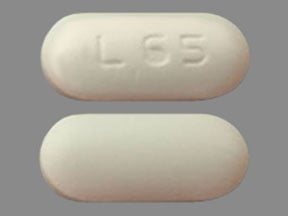
Symfi is a medication used to manage HIV infection. It combines three drugs: efavirenz, lamivudine, and tenofovir, which work together to reduce the amount of HIV in the body. This helps improve the immune system's function, lowering the risk of HIV-related complications such as infections and cancer, and enhancing the quality of life. Efavirenz is classified as a non-nucleoside reverse transcriptase inhibitor (NNRTI), while lamivudine and tenofovir are known as nucleoside and nucleotide reverse transcriptase inhibitors (NRTIs) respectively.
This medication is taken once daily and is considered a complete treatment regimen for many individuals with HIV. However, it is not typically the first choice due to potential serious side effects, including mood changes, as well as liver and kidney problems. Symfi is not a cure for HIV, and continued adherence to prescribed HIV medications is crucial to prevent spreading the virus. It is also important to practice safe behaviors, such as using barrier methods during sexual activity and avoiding sharing personal items that could be contaminated with blood or bodily fluids. Always consult healthcare providers for personalized medical advice and before starting any new medication.
Our coupons are free to use. Before paying, show the pharmacist your Efavirenz-lamivudine-tenofovir savings card to get your free discount. Use our filters below to edit the prescription box to match your needs. The Efavirenz-lamivudine-tenofovir prices will update based on your prescription needs. Above our Efavirenz-lamivudine-tenofovir coupons, you can change your location to see pharmacy prices and costs in other areas. We're here to help you buy Efavirenz-lamivudine-tenofovir at the lowest price with our prescription discount card.
My prescription
Edit
600-300-300MG, Efavirenz-lamivudine-tenofovir (30 Tablets)
Select pharmacy

CVS
$684.25
COUPON PRICE
Albertsons
$318.16
COUPON PRICE
Walgreens
$466.50
COUPON PRICE
Walmart
$1375.73
COUPON PRICEEfavirenz-lamivudine-tenofovir savings card
Show this card to your pharmacist
Albertsons
$318.16
BIN
ID
PCN
GRP
019876
LHE0957149
CHIPPO
LHX
Powered by
Symfi is a medication used to manage HIV infection. It combines three drugs: efavirenz, lamivudine, and tenofovir, which work together to reduce the amount of HIV in the body. This helps improve the immune system's function, lowering the risk of HIV-related complications such as infections and cancer, and enhancing the quality of life. Efavirenz is classified as a non-nucleoside reverse transcriptase inhibitor (NNRTI), while lamivudine and tenofovir are known as nucleoside and nucleotide reverse transcriptase inhibitors (NRTIs) respectively.
This medication is taken once daily and is considered a complete treatment regimen for many individuals with HIV. However, it is not typically the first choice due to potential serious side effects, including mood changes, as well as liver and kidney problems. Symfi is not a cure for HIV, and continued adherence to prescribed HIV medications is crucial to prevent spreading the virus. It is also important to practice safe behaviors, such as using barrier methods during sexual activity and avoiding sharing personal items that could be contaminated with blood or bodily fluids. Always consult healthcare providers for personalized medical advice and before starting any new medication.
Our coupons are free to use. Before paying, show the pharmacist your Efavirenz-lamivudine-tenofovir savings card to get your free discount. Use our filters below to edit the prescription box to match your needs. The Efavirenz-lamivudine-tenofovir prices will update based on your prescription needs. Above our Efavirenz-lamivudine-tenofovir coupons, you can change your location to see pharmacy prices and costs in other areas. We're here to help you buy Efavirenz-lamivudine-tenofovir at the lowest price with our prescription discount card.
More prescriptions for hiv treatment
coupons from$1279.04Save 14%
coupons from$31.58Save 34%
coupons from$684.25Save 60%
coupons from$73.34Save 74%
coupons from$144.74Save 76%
coupons from$318.16Save 78%
coupons from$43.92Save 17%
coupons from$43.92Save 17%
More prescriptions for hiv treatment
Cimduo Save 14%coupons from $1279.04
Ritonavir Save 34%coupons from $31.58
Symfi Lo Save 60%coupons from $684.25
Lamivudine Save 74%coupons from $73.34
Nevirapine Save 76%coupons from $144.74
Symfi Save 78%coupons from $318.16
Ziagen Save 17%coupons from $43.92
Abacavir Save 17%coupons from $43.92
Efavirenz-lamivudine-tenofovir dosage forms
Use our Efavirenz-lamivudine-tenofovir 400-300-300MG coupon with prices from $684.25 for 30 Tablets. You can also use our Efavirenz-lamivudine-tenofovir 600-300-300MG coupon with prices from $318.16 for 30 Tablets.
Dosage Quantity Price from Per unit 400-300-300MG 30 Tablets $684.25 $22.81 600-300-300MG 30 Tablets $318.16 $10.61
| Dosage | Quantity | Price from | Per unit |
|---|---|---|---|
| 400-300-300MG | 30 Tablets | $684.25 | $22.81 |
| 600-300-300MG | 30 Tablets | $318.16 | $10.61 |
